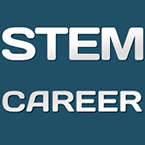With the retiring “baby boomer” generation, top companies are quickly losing qualified scientists, engineers, and other STEM skilled labor that requires precise expertise. As a result, there is a growing demand for new talent and companies such as Microsoft and Boeing are now contacting individuals before college graduation. Please read the article to see the success stories.
STEM & Business Together Create Entrepreneurial Solutions
A new book, Cold Cash, Cool Climate: Science-Based Advice for Ecological Entrepreneurs, Jon Koomey discusses how we can turn the smarts of business to the major problems of our time. Examples of rapid innovation and mobilization using STEM fields have happened before in U.S. history (e.g. WWII production and the creation of Sputnik). “Entrepreneurs will go to the place where the profits are, and until society commits itself to really changing, it’s hard for entrepreneurs to see the value in addressing the problem.” STEM fields are a necessary element in solving the problems of today and tomorrow.
STEM Fields Misunderstood by Youth
Top companies such as IBM, Intel, and Boeing are making an initiative to educate youth on the job duties of those in STEM careers. Recent findings have concluded that children often reap [More…] the benefits of engineering work, i.e. texting on their smartphone, using Facebook, or gaming, etc., but fail to understand which professions create that technology. Making an investment in educating youth in STEM is a bold move and is a great way to ensure a new generation of STEM workers’ will fill future jobs. Read Article –>
Chinese Competition for U.S. University Enrollment Rising
In 2010-11, over 56,976 students were enrolled in U.S. universities, making China the largest exporter of undergraduates over any other [More…] country. Because the U.S. still maintains its integrity in post-secondary education, many Chinese are pushing their children to attend top U.S. universities. They hope for a better education and the potential option to live in the U.S. after school. In China, children are better educated over U.S. children in STEM fields, making them competitive applicants. “High standards and high expectations are the norm in China, not the exception, as is often the case in the United States.” Article ->
College Degrees in STEM Experiencing Tuition Increase
Not only does a poor economy increase job loss, unemployment, and job scarcity, but a recent study from Cornell shows a differentiation in undergraduate tuition rates – 19% [More…] rise (over 140 colleges) since 2006. Unfortunately, colleges have been forced to increase tuition since funding for many public schools has declined due to new policies. This, coupled with the stigma that STEM-related education is “too hard” could be threatening to a much needed workforce. Even more detrimental, a loss in a trained STEM workforce could pose a threat to the U.S. economy in the future. See Article ->
College Grads Turn to Tech Schools for STEM Training
As a result of a tough job market, a.k.a. “employer’s market”, this article highlights how some new college grads are turning to tech schools for more specified training in STEM related fields. [More…] Many of the recent grads admit that their four-year college degree provided them with a “well-rounded education” and having a “tech degree has made [them] more competitive” in the current job market.
U.S. Encouraged to Increase STEM Education
Even though the U.S. in bursting with brilliant minds, STEM education and interest has been on the decline for decades. Top corporations such as Google [More…] and governmental agencies like NASA realize the demand for well-trained people in STEM careers. It is not only detrimental for our need to design renewable energy systems and cure diseases, but also to maintain a strong economy. Read Article->
STEM Education = Scientific Success
Not only is STEM education a catalyst for good jobs, but STEM jobs seek to further the progression of solving the worlds toughest [More…] problems. Other countries such as Canada, Finland, and China continually do well on science assessments making them a proven model for advancement. This article states that it will take more than brilliant minds, but rather an engaged and supportive U.S. society.







